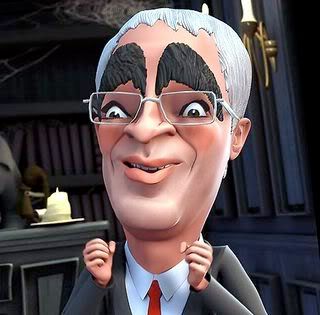Growing up in Brazil in the 70s and 80s, I saw the value of the local currency nosedive so often, a few zeros had to be cut out and a new currency introduced every couple of years. I remember as a child dealing with the contos, the cruzeiros, the cruzados, the real, and talks of the IMF coming to the rescue of yet another floundering country in the developing world. Inflation used to be so high, my parents would bulk buy non-perishable goods such as toilet paper and laundry soap in enough quantities to last about three months.
Belts had to be tightened all the time, but as a kid, the only time I felt an actual pinch was when my mother refused me more pocket money and that may had had more to do with me not getting the grades at school she wanted me to get than anything to do with an economic crisis.
Now, as an adult of working age having a career break, the scenario is completely different. It has been more than six months since I last saw a pay cheque, and, despite being a cautious spender, my savings are looking visibly leaner.
Crash in the Land of Ice

Yesterday I learned that Landsbanki (trading under the name Icesave in the UK), the Icelandic bank where I held an ISA, has gone bust, and my savings are frozen and non-withdrawable. According to the papers, it will be at least three months and a lot of red tape before I can reclaim any cash back through a complex combination of British and Icelandic financial compensation schemes.
I had moved my ISA from one of the top three British banks to an Icelandic one last spring for the higher interest rates, and because I thought my money would be safer. My greed backfired.
I went through "an Icelandic phase" last spring and also happened to open a savings account in Kaupthing Edge, another Icelandic bank, allured by an attractive guarantee of interest rates higher than the Bank of England base rate for the next few years. I was about to be a student for a while. I needed my money to work hard and grow fast.
Now I am paralysed with apprehension. The latest news is that Dutch bank ING Direct has bought all savings held in Kaupthing, but does that mean they are safe, or will I read in the papers tomorrow that Kaupthing has also bitten the dust, and that my lifetime savings are locked for the foreseeable future, or worse, that I may only partially recover them?
Survival skills
I can't take my eyes off the news at the moment. Everyday a new financial disaster: another bank goes into receivership, a travel agency folds down, an airline, the construction industry, another home eviction. Who will be the next victim of the credit crunch? And what salvation packages will the government roll out to rebuild consumer confidence and kick the ailing economy back into health?
It is interesting to see how we re-prioritise our spending habits to fit in with these hard cash-starved times. A great number of shoppers are shifting to discount supermarkets like Lidl and Aldi for their groceries, and the majority admit to taking more time comparing prices before placing items in their shopping basket.
My boyfriend is ridding himself of his second-hand fuel-guzzling Mercedes come end of next month, when its MOT and tax expires. The environment and his pocket will thank him for it. The resulting inconvenience is something we will have to learn to live with.
I have decided I must continue to have my haircuts at the salon in town that offers "half price for non-appointments", even if I am not too keen on their cuts. Shopping for clothing, shoes and handbags are way down my priority list, and I surely have enough makeup at home to last me a few years. On college days, I buy my coffee (weak but drinkable) for 20 pence at their basement coffee machine, rather than shell out £1.50 at Asda, which is still nearly half what I'd pay at Starbucks. These are superfluous things, I tell myself, non-essentials.
Admittedly it is harder to save on food – even the dog needs his weekly supply of Butcher's tripe mix tins and occasional doggy biscuits in recognition for having been "good". And rents or mortgages, whichever the case may be, along with energy bills, are a sad and ever growing fact of life.

So even if I go around with a crap hairdo, drinking watery coffee, wearing greying old knickers and shoes with holes in them, what else can I possibly do to stop my hard-earned cash from seeping out like dribble out of a baby's mouth. And, if I do manage to save a penny or two, where can I safely keep them other than under the mattress?
Bleak expectations?
Three months to go till the end of my studies. Still no job prospects, not even an interview. I look at the national unemployment rate rising, and it sends shivers down my spine. Was I insane in attempting a career change when jobs are so scarce any way? My savings have been hijacked by Iceland. And – no pressure – but we have a wedding to plan too. Everywhere I turn there is instability, insecurity, uncertainty about the future.
I must admit I am a control freak when it comes to money. I keep daily tabs on my expenditure, a habit I acquired when I first left home to go on a scholarship to Japan. I keep a book to control all incoming and outgoing monies so that I know when I have overspent and should restrain, and when I can indulge a bit more. If I did not have this method of controlling my finances, I would be so paranoid about overspending I could not even step out of the house to buy bread.

I guess I have an inherent phobia of poverty.
Some are not averse to living for the day, not worrying about tomorrow, but I'm not one of them. My boyfriend, for instance, tells me he grew up in such extreme want and deprivation in Scotland in the Thatcher years, he is used to surviving on the bare minimum. A friend of mine says she has never checked her bank statement in her life but has not once been overdrawn.
I like security. I check my balance obsessively, and I set up strict budgets for myself. Maybe that's why I was a successful sales manager: I always keep my balance sheets in the black.
Tweezers, darling?
The sight of Alistair Darling's dark bushy eyebrows on the TV screen fascinates me in a rather morbid way. Something about his appearance does not inspire trust, which, for a Chancellor of Exchequer is bad news. What I want to know is: where does Alistair keep his own cash, and does he have any hidden under his bed.
Surely he can afford an eyebrow pluck at his next visit to the barber's? If he can't sort out the economy, at least tidy up his facial hair, I say. That would be a laugh. And I badly need one.

 So even if I go around with a crap hairdo, drinking watery coffee, wearing greying old knickers and shoes with holes in them, what else can I possibly do to stop my hard-earned cash from seeping out like dribble out of a baby's mouth. And, if I do manage to save a penny or two, where can I safely keep them other than under the mattress?
So even if I go around with a crap hairdo, drinking watery coffee, wearing greying old knickers and shoes with holes in them, what else can I possibly do to stop my hard-earned cash from seeping out like dribble out of a baby's mouth. And, if I do manage to save a penny or two, where can I safely keep them other than under the mattress?


